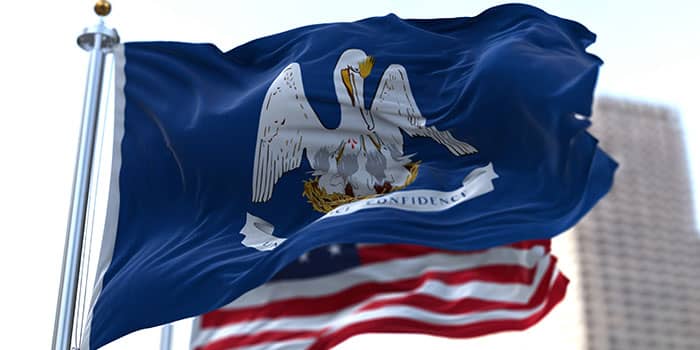While the activity isn’t legal, at least for the moment, one lawmaker estimated that nearly $5 billion in untaxed revenue is lost to illegal online gambling

There are less than 10 US states that currently offer legal online gambling. While the activity is available to customers in major markets such as Michigan, Pennsylvania and New Jersey, among others for a total of seven states, illegal online gambling and offshore operators offer their services to customers in states where the activity isn’t permitted.
Customers in Louisiana Targeted by Illegal Gambling
In Louisiana, online and retail sports betting is permitted, along with land-based gambling. However, while the state doesn’t offer legal online casino gambling, billions in revenue flows to the unlicensed sector. That is according to Rep. Mike Echols, who was recently interviewed by WAFB.
Louisiana launched online sports betting nearly three years ago on January 28, 2022. Recognizable companies, including DraftKings, FanDuel, Caesars and BetMGM currently offer their services to customers across the state. Despite the availability of mobile betting, many customers also consider engaging in online casino gambling, which isn’t legal in Louisiana.
Per an estimate from Echols, annually, the state loses a staggering $4.6 billion in untaxed revenue. “They’re predatorily coming after our constituents and allowing them to gamble online,” he explained. According to Echols, the fault isn’t in Louisiana’s residents but rather the offshore and illegal gambling providers that provide their services without restrictions.
Online Gambling Legalization May Create New Risks
As noted, Louisiana is yet to legalize online gambling. In case this happens, according to Echols, the iGaming operators need to be tied to racetracks and casinos across the state. In the lawmaker’s words: “If we consider iGaming, it has to be linked to those land-based facilities because they’ve actually made a physical deposit in Louisiana.”
Similar to sports betting, the legalization of iGaming is a lengthy process that requires significant efforts by lawmakers, the casino sector and other stakeholders. According to Chris Hebert, the Louisiana Gaming Control Board’s chair, the legalization of iGaming creates further risks. The executive said that visiting a land-based casino and spending money from the comfort of your couch are not the same. “Those present real problems. As regulators that is not lost on us,” Hebert explained.
The fear about the impact of online gambling is real in the context of the easy accessibility to the activity thanks to smartphones. Still, there are benefits of the legal sector that would require iGaming operators to comply with a regulatory framework, including know-your-customer, anti-money laundering and responsible gambling policies.
While there’s no guarantee that a person won’t get addicted to gambling via the legal sector, operators encourage the use of responsible gaming tools. At the same time, licensed online casinos pay tax revenue, which in turn is partially used for treating problem gambling.
Despite that, a federal-level duty of care that seeks to cover the iGaming and betting vertical is yet to be established.
